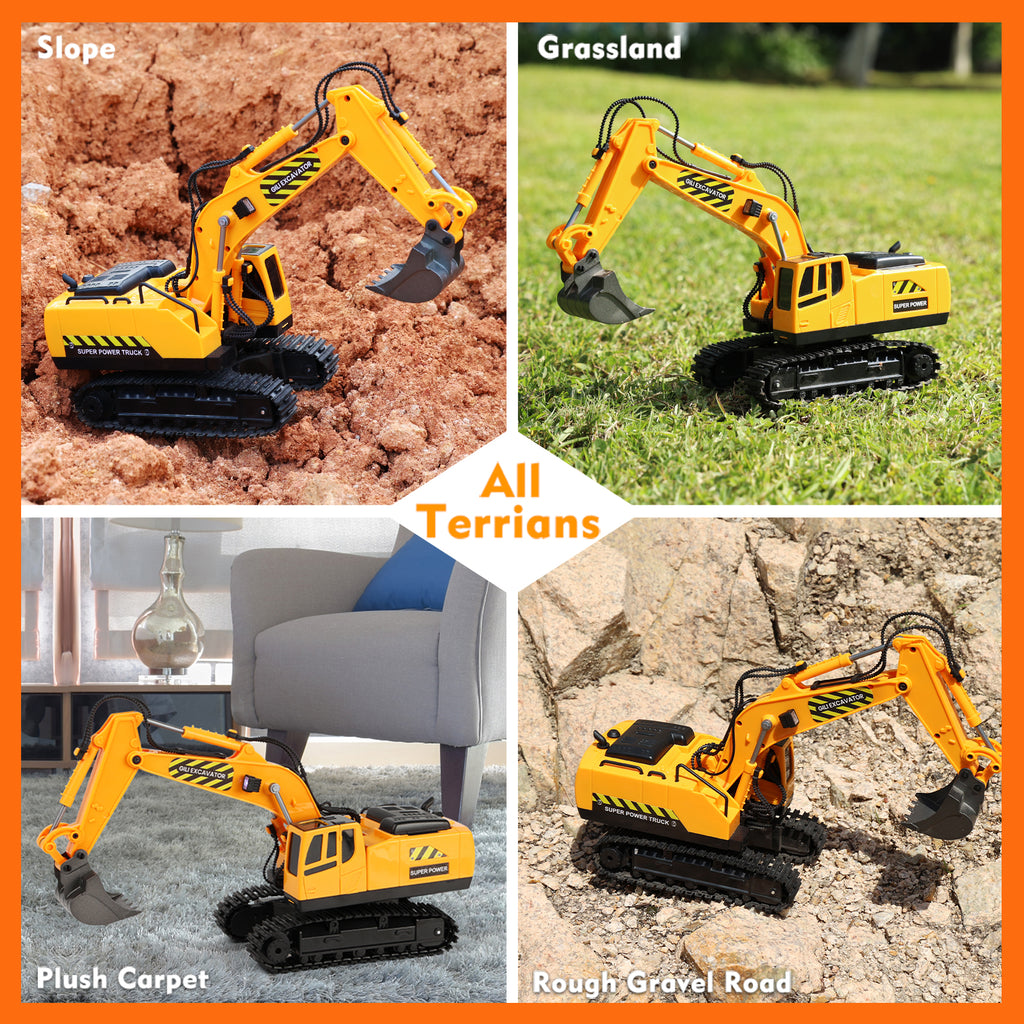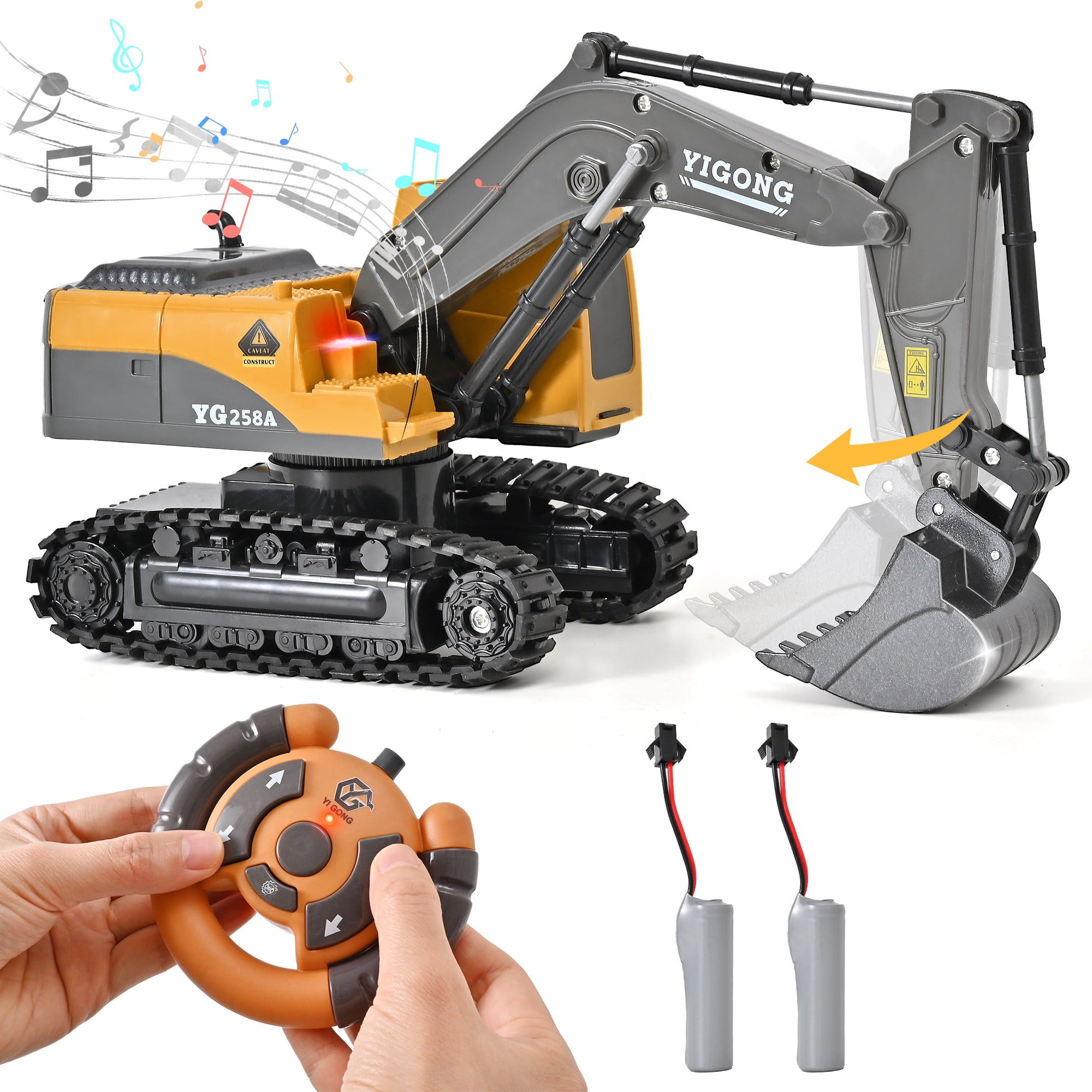Discover the Relevance of Excavator in Modern Building Projects
Excavators are important tools in modern building and construction jobs. Their adaptability permits them to perform a wide variety of jobs, from excavating and grading to demolition and site prep work. Advanced attributes, such as hydraulic attachments and GPS, improve their capacities and effectiveness on task websites. As the sector evolves, the relevance of excavators expands much more. Understanding their function can expose insights into the future of building methods. What exists ahead for these machines?
The Adaptability of Excavators in Different Projects
Excavators are usually linked with massive building jobs, their adaptability enables them to be used in a large range of applications, from residential landscaping to utility maintenance. In city setups, excavators can browse limited spaces to dig structures for homes or install drainage systems. Their capability to perform delicate jobs makes them optimal for landscaping tasks, where they can dig deep into for ponds or plant trees. In addition, excavators play a vital function in energy upkeep, effectively digging trenches for pipelines or cable televisions without interfering with surrounding locations. In farming applications, they help in land cleaning and dirt prep work. In addition, their adaptability enables them to be equipped with various attachments, improving their functionality across various tasks. This diverse nature of excavators not just streamlines numerous building and construction procedures however also shows their essential duty in contemporary framework advancement and upkeep.
Secret Functions and Kinds of Excavators
The conversation on key attributes and sorts of excavators highlights the necessary features that make these machines very useful in building and construction. Different excavator kinds, each created for specific jobs, demonstrate their flexibility and efficiency throughout different applications. rc excavator. Recognizing these features and classifications is crucial for maximizing their use in modern-day construction tasks
Excavator Types Introduction
Excavators play an essential duty in contemporary construction, offering flexibility and efficiency throughout various jobs. These heavy machinery devices come in numerous kinds, each tailored for certain applications. One of the most typical types consist of spider excavators, recognized for their security on uneven terrain, and rolled excavators, which provide better movement on paved surface areas. Tiny excavators are favored for small-scale jobs and tight areas, while long-reach excavators are designed for deep digging. Additionally, there are specialized excavators, such as hydraulic excavators, which enhance power and precision. Each type features distinct capabilities, making them important for tasks varying from excavating and grading to demolition and product handling. Recognizing these variations allows building and construction experts to select the right excavator for their task needs.
Secret Includes Explained
Recognizing the essential functions of excavators boosts their effective application in construction projects. Excavators are defined by their effective hydraulic systems, which provide the required force for digging, training, and relocating products. Their articulated arms permit for a wide variety of activity, helping with specific operations in confined areas. Furthermore, the range of attachments, such as containers, grapples, and augers, broadens their flexibility to fulfill various job needs. The size and weight of excavators also contribute to their stability and maneuverability on various terrains. Developments in technology have actually led to the integration of GPS and automation, boosting accuracy and effectiveness in excavation jobs. These functions collectively place excavators as vital tools in contemporary building.
Applications in Building
Changing building and construction sites, excavators play a critical role across numerous applications, ranging from household building jobs to massive facilities developments. These functional makers are geared up for tasks such as excavating foundations, trenching for energies, and site grading. Different kinds of excavators, consisting of crawler, wheeled, and mini excavators, provide certain advantages tailored to the project requirements. Crawler excavators master rough surfaces, while rolled excavators supply movement on smooth surfaces. Miniature excavators are excellent for restricted rooms, making them preferred in urban setups. The performance and power of excavators significantly accelerate construction processes, making sure timely task conclusion. Their versatility additionally enhances their importance, allowing building and construction teams to tackle a varied selection of challenges properly.
Enhancing Effectiveness and Efficiency on Work Sites
Making best use of performance and performance on job sites is a critical objective in modern building and construction. Excavators play a critical role in achieving this objective by enhancing numerous jobs. Their capacity to carry out multiple features-- such as training, digging, and grading-- lowers the requirement for added equipment, thus conserving time and resources.Moreover, excavators enhance operations by permitting faster conclusion of jobs. With advanced features like hydraulic add-ons and general practitioners innovation, they can execute accurate operations that minimize errors and rework. This precision not only improves the top quality of job but likewise maximizes product use, adding to cost savings.The convenience of excavators enables them to adjust to different website conditions, making sure that jobs proceed efficiently despite challenges. By incorporating excavators into building procedures, teams can significantly boost their overall efficiency, resulting in timely project completion and enhanced productivity.
Security Benefits of Utilizing Excavators
Excavators substantially enhance safety and security on building sites via boosted driver presence and reduced manual work risks. By supplying operators with a clear view of their surroundings, excavators help to avoid injuries and accidents. Additionally, the machinery minimizes the requirement for workers to take part in harmful manual jobs, even more advertising a more secure workplace.
Improved Driver Visibility
Construction sites can be chaotic and filled with prospective hazards, enhanced driver presence plays a vital duty in making sure safety and security when making use of excavators. Modern excavators are developed with large, unhampered windows and tactically positioned mirrors, enabling drivers to maintain a clear sight of their environments (rc excavator). This boosted visibility is important for identifying pedestrians, other machinery, and numerous barriers, considerably minimizing the threat of crashes. Furthermore, lots of excavators incorporate innovative innovation, such as cams and sensing units, to offer operators with added perspectives, better improving understanding. The capacity to see more clearly not only aids in effective procedure but also fosters a much safer job environment, making it easier for drivers to browse complex construction sites without endangering safety and security requirements
Reduced Guidebook Labor Risks
When manual labor is reduced through the use of excavators, many safety advantages emerge, noticeably improving the wellness of building employees. Excavators minimize the physical stress associated with hefty training and recurring jobs, effectively lowering the risk of bone and joint injuries. By automating procedures such as digging, grading, and moving materials, they permit employees to maintain a much safer range from possible risks. Additionally, excavators are equipped with advanced safety features, such as rollover security systems and boosted operator functional designs, which further guard personnel on website. The result is a considerable reduction in work environment mishaps and injuries, bring about enhanced productivity and spirits amongst construction groups. Ultimately, the adoption of excavators contributes to a more secure and a lot more efficient building and construction atmosphere.
Excavators in Earthmoving and Site Prep Work
In modern-day building and construction, a substantial part of earthmoving and website preparation jobs counts on the performance and adaptability of excavators. These devices are made to deal with various soil types and surface, making them crucial for grading, excavating, and trenching activities. Their hydraulic arms can be geared up with various accessories, such as buckets and augers, permitting operators to customize their approach based on certain task requirements.Excavators stand out at relocating large volumes of earth swiftly and successfully, which accelerates the overall construction timeline. They can navigate tight areas and testing sites where typical view it equipment might battle, boosting performance. Additionally, the precision of excavators warranties that website preparation follows stringent requirements, minimizing the threat of errors that might bring about pricey rework.
The Duty of Excavators in Demolition Tasks
Excavators play a vital role in demolition tasks, as they have the power and agility required to dismantle frameworks efficiently. Outfitted with different accessories such as hydraulic breakers, shears, and grapples, these equipments can adapt to various demolition demands, whether for little structures or huge commercial sites. Their adaptability enables drivers to deal with complicated projects while preserving safety and precision.In addition to their demolition capabilities, excavators assist in debris elimination, making certain that work websites continue to be risk-free and orderly. By breaking down structures right into convenient items, they permit streamlined clearing up and recycling of products, straightening with contemporary sustainability efforts.Moreover, excavators can access tight rooms and browse irregular terrain, making them crucial in metropolitan demolition tasks. Generally, their robust design and multifunctionality make excavators an important advice property in the demolition stage of building and construction, adding substantially to project timelines and performance.


Future Trends in Excavator Innovation and Usage
As the building sector progresses, innovations in excavator technology are poised to change their usage and performance substantially. One considerable pattern is the integration of automation and man-made knowledge, permitting excavators to operate with minimal human treatment. This shift will certainly improve accuracy in tasks such as grading and trenching, lowering human error and boosting productivity.Additionally, the surge of hybrid and electric excavators is shaping a more sustainable building and construction setting, reducing carbon discharges and fuel prices. Improved telematics systems are additionally emerging, making it possible for real-time monitoring of device performance and maintenance demands, which can cause far better operational efficiency and longer devices lifespan.Moreover, improvements in attachment innovation are expanding the versatility of excavators, enabling them to carry out a broader series of jobs. The combination of these patterns demonstrates a future where excavators are smarter, greener, and much more adaptable, ultimately reshaping construction project dynamics.
Regularly Asked Concerns
How Do Excavators Contrast to Various Other Construction Machinery?
Excavators, defined by their adaptability and power, master excavating and earthmoving contrasted to other equipment. Their ability to do various tasks, consisting of training and demolition, makes them important in construction projects, boosting general effectiveness.

What Is the Average Lifespan of an Excavator?
The average life-span of an excavator generally website here ranges from 7,000 to 10,000 operating hours, depending upon upkeep, usage problems, and version. Correct care can expand this lifespan, ensuring peak performance throughout its operational years.
How Are Excavators Maintained for Ideal Efficiency?
Excavators need regular upkeep for peak efficiency, including routine assessments, fluid checks, filter substitutes, and prompt repair work. Implementing a precautionary upkeep schedule aids prolong their life expectancy and assurances effective procedure in various construction atmospheres.
What Are the Prices Connected With Renting Out vs. Getting an Excavator?
The costs related to leasing versus getting an excavator vary substantially. Renting deals reduced upfront expenses however can accumulate with time, while buying requires a significant preliminary investment, yet provides long-term savings and possession ownership advantages.
What Training Is Required to Run an Excavator?
Running an excavator requires specialized training, commonly including safety and security methods, maker operation strategies, and ecological awareness. Accreditation programs usually mandate functional experience, allowing operators to deal with various tasks efficiently while making certain compliance with sector policies. The most common types consist of spider excavators, recognized for their security on uneven terrain, and rolled excavators, which offer greater mobility on paved surface areas. Mini excavators are preferred for small projects and limited spaces, while long-reach excavators are made for deep excavating. Furthermore, there are customized excavators, such as hydraulic excavators, which improve power and accuracy. Different types of excavators, consisting of crawler, wheeled, and mini excavators, give particular advantages customized to the project requirements. Crawler excavators excel in harsh surfaces, while wheeled excavators offer mobility on paved surfaces.
Comments on “Why Every Construction Site Needs a rc excavator for Speedy Completion”